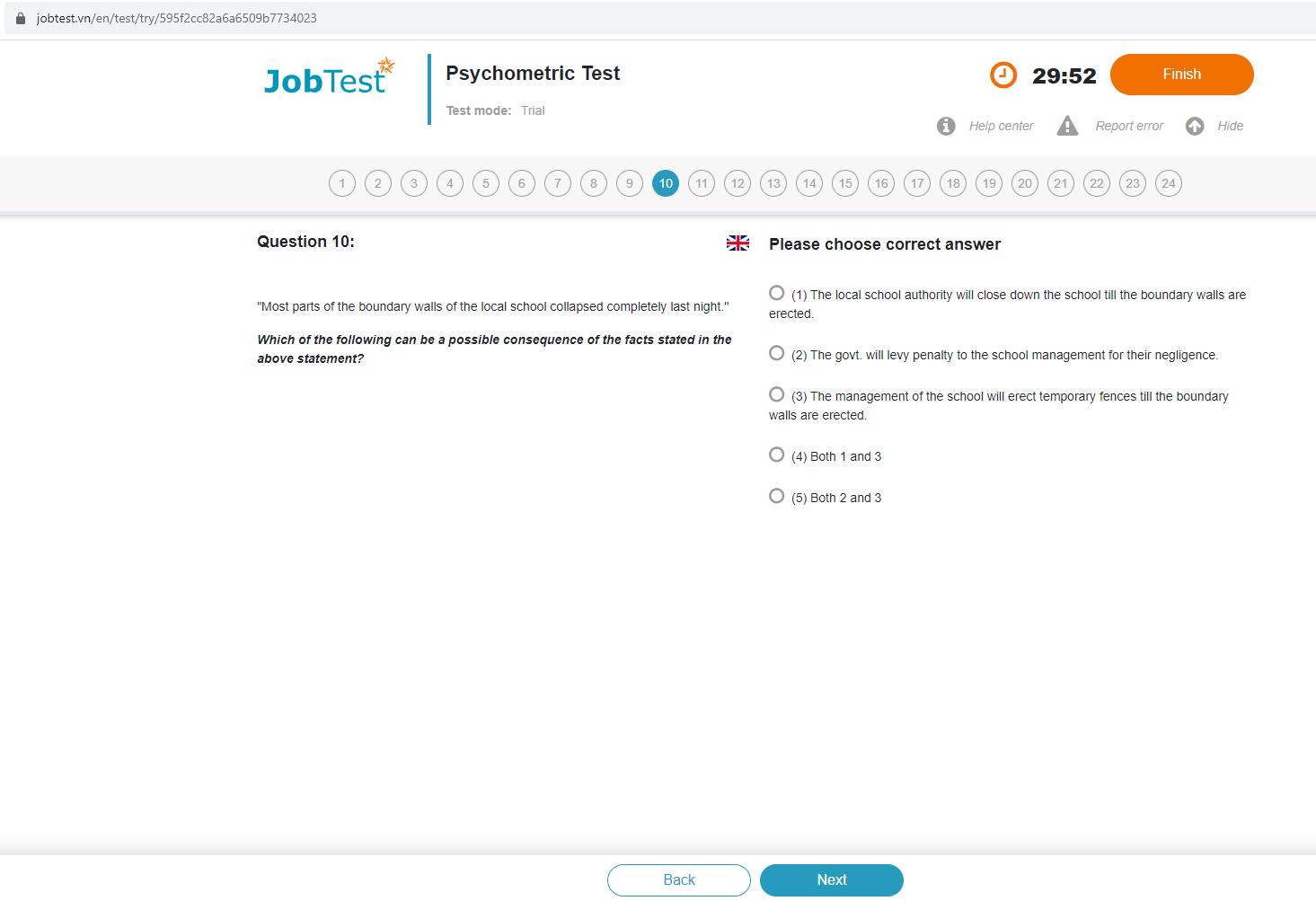
Psychometric Test
- Psychometrics simply means measurement of the mind. It's derived from the Greek ‘psyche’ (mind) and ‘metron’ (measure).
- Essentially, it is a measure of how your brain works and provides a quantifiable measurement of your mental ability.
Competency Assessment List ()
Psychometrics simply means measurement of the mind. It`s derived from the Greek ‘psyche’ (mind) and ‘metron’ (measure). Essentially, it is a measure of how your brain works and provides a quantifiable measurement of your mental ability.
The psychological tests that measure our minds generally fall into two broad categories:

- There are tests designed to assess personal qualities, such as personality, beliefs, values, and interests, as well as motivation or ‘drive’. These are known as measures of typical performance. They are usually administered without a time limit and the questions have no ‘right’ and ‘wrong’ answers. The answers reflect how the person taking the test would usually or typically feel, what they believe, or what they think about things.
- The second category includes tests that are designed to measure performance. These are called tests of ability, aptitude or attainment and are known as measures of maximum performance. They are usually administered with a fixed time limit, and the questions have right and wrong answers.
Psychometric tests have been used since the early part of the 20th century and were originally developed for use in educational psychology. These days, outside of education, you are most likely to encounter psychometric testing as part of the recruitment or selection process. Tests of this sort are devised by occupational psychologists and their aim is to provide employers with a reliable method of selecting the most suitable job applicants or HIPO candidates for succession plan and promotion.
In recent years there has been rapid growth (particularly in the US and the UK) of tests that claim to measure job applicants’ integrity or honesty and their predisposition to anger. These tests have attracted a lot of controversy, because of questions about their validity, but their popularity with employers has continued to increase.

Psychometric testing is now used by over 80% of the Fortune 500 companies in the USA and by over 75% of the Times Top 100 companies in the UK. Information technology companies, financial institutions, management consultancies, local authorities, the civil service, police forces, fire services and the armed forces all make extensive use of use psychometric testing.

Personality has a significant role to play in deciding whether you have the enthusiasm and motivation that the employer is looking for. It also determines how well you are going to fit in to the organization, in terms of your personality, attitude and general work style. In most working situations it`s the personalities of the people involved that affect the day-to-day success of the organization. If a manager can`t motivate their staff or the team doesn`t work well together, then quality of service and productivity will suffer.
There have also been significant changes in the past 20 years in the way that organizations operate. For example, management styles tend to be less autocratic and there are usually fewer levels of management than there were. The move towards more knowledge based and customer focused jobs means that individuals have more autonomy even at fairly low levels within organizations. In addition, most organizations expect to undergo frequent changes in the way that they operate in order to remain competitive. All of these factors have contributed to your personality being seen as more important now than it was in the past.





















